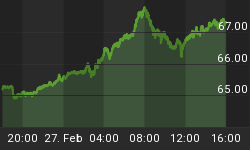With two consecutive quarters of contracting Gross Domestic Product, Japan is officially back in recession. GDP shrank 1.6% annualized.
Unadjusted for price changes, the Japanese economy contracted an annualized 3 percent, the Cabinet Office said.
None of this was "expected". We will explore "why" in a moment. First consider some headlines.
Bloomberg: Japan Unexpectedly Enters Recession as Abe Weighs Tax.
Wall Street Journal: Japan Falls Into Recession. GDP Declines 1.6%, Setting Stage for Delay in [Another] Sales-Tax Increase.
Time: Japan Sinks Into Recession (Again).
Time Reports ...
An unexpected contraction in quarterly GDP shows that Prime Minister Shinzo Abe's radical economic program is badly broken. GDP in the quarter ended September shrank by an annualized 1.6% -- far, far worse than the consensus forecasts. That followed a disastrous 7.3% contraction in the previous quarter. Speculation in Japan is that the bad results will push Abe to call a snap election only two years after taking office.
Financial Times: Sales Tax Tips Japan Back Into Recession
Financial Times Reports
Japan is poised for a snap election after its economy tipped into a technical recession, increasing the odds that prime minister Shinzo Abe will delay plans to raise the country's sales tax next year and appeal for a fresh mandate.Monday's preliminary data for the period between July and September was far worse than markets expected, showing the economy shrank 1.6 per cent quarter-on-quarter on an annualised basis. Analysts had expected growth of 2.2 per cent.
The dip is a blow for "Abenomics", the most ambitious attempt to revive Japan's economy since it fell into stagnation two decades ago.
Expectation vs. Reality
- Expectation: Last quarter's huge plunge was a one-time affair.
- Expectation: 2.2% growth this quarter.
Instead, Japan's economy shrank 1.6% and last quarter was revised lower from negative 7.1% to negative 7.3%.
Blue Ribbon Panel in Review
Flashback August 31, 2013: Japan Seeks to Hike Taxes then Waste Money on Stimulus to Make Up for Decline in Spending.
My comment: "When you cherry pick a panel, and the panel has a pre-determined outcome, the answer always comes out the way you expect. Thus Abe's blue ribbon panel concluded tax hikes won't hurt. And for good measure, if by some chance they do, the panel suggested wasting those tax dollars on stimulus. Good grief!"
Flashback April 30, 2014: Japan Output and New Orders Decline at Fastest Pace Since 2012; Abenomics in Review
My Comment: "Abenomics said Japanese stimulus efforts would offset tax hikes. I disagreed. Although one month is not proof, Markit reports Japanese Output and New Orders Decline For First Time in 14 Months Following Tax Hike."
Flashback September 8, 2014: Japanese Economy Contracts Bigger than Expected 7.1% in 2nd Quarter; Really Bad Theories
My Comment: "By now it should be pretty clear that Abenomics is a complete failure. Abenomics did not spur lending, investment, hiring, or wage growth. It's one touted 'success' is that prices have gone up. And for cash-strapped consumers facing higher taxes, that alleged "success" is actually a disaster."
In September, I also commented on "really bad theories".
Really Bad Theories
"Theoretically, there should be no impact from the consumption tax increase on corporate spending or long-term corporate planning, but a large number of Japanese corporations seemed to see a large impact from the hike on final demand," said Junko Nishioka, an economist at RBS Japan Securities in Tokyo.
Good grief. Nishioka has theories, but they are as sound as a home foundation in a swamp. Here's an easy to understand explanation.
Eight Point Explanation
- Japan's sales tax increased from 5% to 8%.
- Wages did not go up.
- Consumers have 3% less money to spend.
- Consumers with less money, spend less.
- Businesses faced with a slowdown in consumer spending reduce future plans.
- Abe plans to hike the sales tax again and businesses know that as well.
- Business sentiment sours.
- Japanese demographics are such that businesses already have substantial worries.
What is it about those eight points that economist Nishioka fails to understand?
Mystery Explained
Why all of this is so "unexpected" is an apparent mystery. Sales tax hikes do not spur the economy, no matter how much of it government wastes. And it should not take a genius or an 8-point synopsis to figure that out.
So why was this news so "unexpected" in nearly every quarter? I have two answers.
- Economists are the most optimistic lot on the planet. They believe what they want to believe.
- The average economist also believes in Monetarist and Keynesian fairy tales.
Japan is living proof of the absolute stupidity of Abenomics (a combination of Keynesian and Monetarist stupidity), yet academia, let by economist Paul Krugman concludes "Japan did not do enough".
Apparently, debt to the tune of 250% of GDP fighting deflation was not enough. 500% would not have been enough either, for obvious reasons.
But don't expect any Keynesian or Monetarist clowns to admit that. They will never stop believing in fairy tales.















